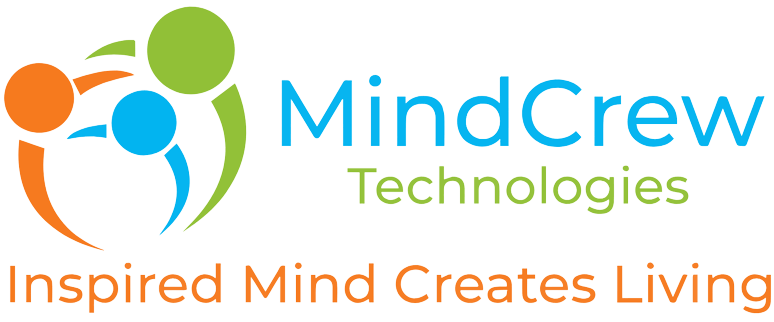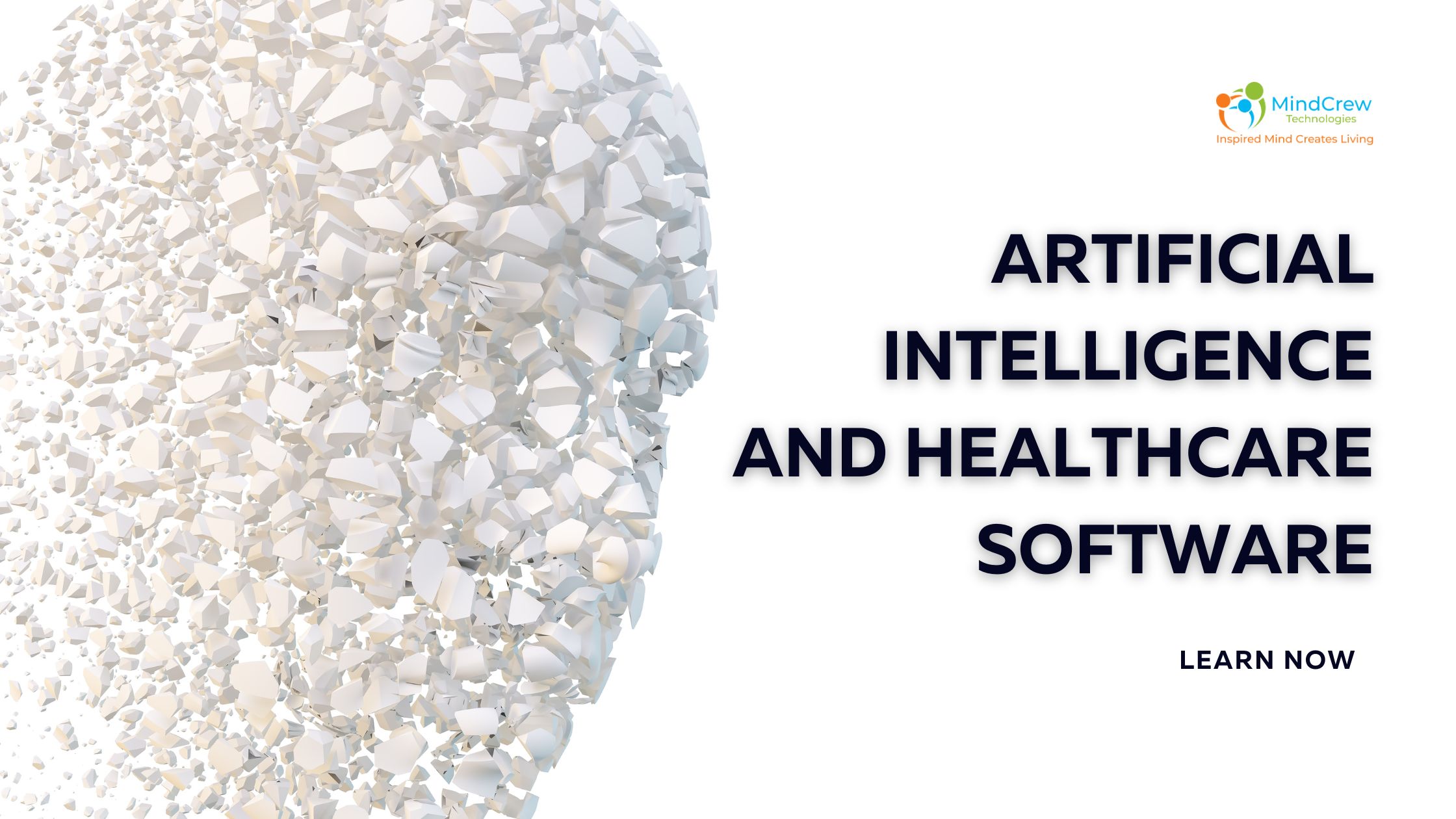Artificial Intelligence: Healing Custom Healthcare Software Development Problems
Custom healthcare software development is a complex and ever-evolving process that requires careful planning, expertise, and execution. However, with the power of Artificial Intelligence (AI) and Machine Learning (ML), many of the challenges and roadblocks faced by healthcare app developers can now be overcome with ease. In this article, we will explore how AI and ML are revolutionising the field of healthcare software development, and how AI/ML solution providers are leveraging these technologies to create innovative and efficient healthcare solutions. Whether you are a developer, a healthcare professional, or simply interested in the intersection of technology and healthcare, this article will provide valuable insights into the transformative power of AI in the healthcare industry.
The Challenges of Healthcare Software Development
The challenges of healthcare software development are significant and varied. One of the key issues faced by developers is the integration of multiple data sources and systems. In the healthcare industry, data is generated from various sources such as electronic health records (EHRs), medical imaging devices, wearables, and more. The ability to gather, process, and analyze this data in real-time is crucial for providing accurate and timely healthcare services.
Another challenge is ensuring the security and privacy of patient information. Healthcare data is highly sensitive and valuable, making it a prime target for hackers. Custom healthcare software developers must implement robust security measures, such as encryption and access control, to protect patient data from unauthorized access.
Additionally, developers face the challenge of building software that is both user-friendly and intuitive for healthcare professionals. The software should seamlessly integrate into their existing workflow and be easy to navigate, even for those with limited technical expertise.
Fortunately, with the advancements in AI and ML, many of these challenges can now be addressed. AI algorithms and ML models can be used to analyze and interpret large volumes of healthcare data, making it easier to identify patterns, predict outcomes, and provide personalized treatment plans. AI-powered solutions can also help automate repetitive tasks, freeing up healthcare professionals to focus on more critical aspects of patient care.
In the next section, we will further explore how AI and ML can overcome these challenges and revolutionize healthcare software development. Stay tuned!
How Artificial Intelligence can Revolutionize Healthcare Software
Artificial intelligence (AI) has the potential to revolutionize healthcare software development by addressing the challenges faced by developers. One of the key benefits of AI is its ability to analyze and interpret large volumes of healthcare data. AI algorithms and machine learning (ML) models can sift through vast amounts of information to identify patterns, predict outcomes, and provide personalized treatment plans.
By harnessing the power of AI, healthcare software can provide real-time insights that aid healthcare professionals in making more accurate diagnoses and treatment decisions. AI-powered solutions can also automate repetitive tasks, such as data entry and documentation, freeing up valuable time for healthcare professionals to focus on delivering quality patient care.
Furthermore, AI can enhance the security and privacy of patient information. With advanced AI algorithms, custom healthcare software can implement robust security measures, such as anomaly detection, to quickly identify and prevent unauthorized access, ensuring data privacy and protection.
In the following section, we will dive deeper into the specific ways AI can overcome these challenges and transform healthcare software development. Stay tuned to discover the immense potential of AI in solving custom healthcare software development problems.
Enhancing Accuracy and Efficiency with AI-driven Solutions
AI-driven solutions have the potential to significantly enhance the accuracy and efficiency of healthcare software. With AI algorithms and machine learning models, healthcare professionals can access real-time insights and make more accurate diagnoses, ultimately leading to better patient outcomes.
One area where AI shines is in automating repetitive tasks that would typically require significant time and effort from healthcare professionals. By leveraging AI, healthcare software can streamline processes such as data entry and documentation, freeing up valuable time that can be redirected towards patient care.
Additionally, AI can optimize treatment plans and improve the overall efficiency of healthcare systems. By analyzing large volumes of healthcare data, AI algorithms can identify patterns and make predictions that aid in delivering personalized treatment plans. With AI-powered solutions, healthcare professionals can make well-informed decisions based on data-driven recommendations.
In the next section, we will explore the specific AI-driven solutions that address these challenges and revolutionize healthcare software development. Stay tuned to uncover the full potential of AI in transforming the healthcare industry.
Improving Patient Care and Outcomes with AI-powered Software
AI-powered software has tremendous potential to improve patient care and outcomes in the healthcare industry. With the ability to analyze vast amounts of data quickly and accurately, AI algorithms can assist healthcare professionals in making more informed decisions.
One way AI can enhance patient care is by assisting in the diagnosis process. By analyzing symptoms, medical history, and other relevant data, AI algorithms can help doctors reach accurate diagnoses more efficiently. This can reduce the likelihood of misdiagnosis and ensure patients receive appropriate treatments promptly.
Furthermore, AI-powered software can help optimize treatment plans for individual patients. By analyzing patient data, including previous treatment outcomes and medical history, AI algorithms can identify patterns and make personalized recommendations. This can lead to more effective treatments and improved patient outcomes.
AI can also improve patient care by monitoring and predicting potential health risks. With real-time data analysis, AI-powered software can identify early warning signs and alert healthcare professionals to take proactive measures. This can prevent complications, reduce hospital readmissions, and ultimately save lives.
In conclusion, AI-powered software has the power to revolutionize healthcare by improving patient care and outcomes. The integration of AI algorithms and machine learning models with healthcare software presents exciting possibilities for the future. Stay tuned as we delve deeper into the AI-driven solutions that are reshaping the healthcare industry.
Overcoming Security and Privacy Concerns in Healthcare Software
As promising as the integration of AI-powered software in healthcare may be, it inevitably raises concerns about data security and patient privacy. With the vast amount of sensitive information involved in the healthcare industry, it is crucial to address these concerns to ensure the successful implementation of AI-driven solutions.
To overcome security challenges, healthcare organizations need to ensure robust encryption and secure storage of patient data. Implementing strict access controls and monitoring systems can help prevent unauthorized access. Additionally, regular security audits and updates are essential to stay ahead of emerging threats.
Protecting patient privacy requires adherence to applicable regulations, such as HIPAA (Health Insurance Portability and Accountability Act). Healthcare organizations must maintain strict confidentiality and ensure that patient data is only accessed and used for authorized purposes.
Collaboration between software developers and cybersecurity experts is vital to identify vulnerabilities and implement effective mitigation strategies. Additionally, adopting a proactive approach to cybersecurity, such as promoting cybersecurity awareness and providing regular training to staff, can help create a strong security culture within healthcare organizations.
By addressing these concerns head-on and implementing robust security and privacy measures, healthcare software development can harness the power of AI while ensuring the confidentiality and integrity of patient data. In the fast-evolving landscape of healthcare technology, it is essential to strike a balance between innovation and safeguarding patient information.
Stay tuned as we explore the various strategies and technologies that are enabling secure and privacy-conscious healthcare software development in the era of AI.
The Future of Healthcare Software Development with AI
As we look ahead to the future of healthcare software development, it’s clear that AI will play a central role in driving innovation and transforming the industry. AI-powered software has the potential to revolutionize healthcare by improving diagnosis accuracy, streamlining workflows, and enhancing the overall quality of patient care.
One exciting area of development is the use of AI in personalized medicine. By analyzing vast amounts of patient data, AI algorithms can identify patterns and make predictions that aid in more accurate diagnoses and treatment plans. This personalized approach can greatly improve patient outcomes and reduce healthcare costs.
Another area of focus is the integration of AI-powered chatbots and virtual assistants into healthcare software. These intelligent systems can assist patients with routine inquiries, provide medical advice, and even help with medication management. By automating certain tasks, healthcare professionals can focus on more critical aspects of patient care.
However, as we forge ahead with these advancements, it is crucial to maintain a strong commitment to data security and patient privacy. The ethical use of AI in healthcare means safeguarding patient information at all costs. Organizations must continue to invest in robust encryption methods, monitor access controls, and regularly update security systems.
In conclusion, the future of healthcare software development with AI is bright. By harnessing the power of AI, we can create more efficient and effective healthcare systems that prioritize patient care and outcomes. With a continued focus on security and privacy, we can navigate this exciting new frontier while maintaining the trust and confidence of patients and healthcare professionals alike. Stay tuned as we explore the cutting-edge technologies and best practices that will shape the future of healthcare software development.
Conclusion
In conclusion, the integration of artificial intelligence in healthcare software development holds immense promise for revolutionizing the healthcare industry. With AI-powered algorithms analyzing patient data, personalized medicine can become a reality, resulting in more accurate diagnoses and treatment plans for patients. Additionally, the use of AI-powered chatbots and virtual assistants can automate routine tasks, allowing healthcare professionals to dedicate more time to critical patient care.
However, with these advancements, it is crucial to prioritize data security and patient privacy. Organizations must remain vigilant in implementing robust encryption methods and regularly updating security systems to ensure the ethical use of AI in healthcare.
As we continue to explore and implement cutting-edge technologies in healthcare software development, it is essential to maintain the trust and confidence of both patients and healthcare professionals. By prioritizing patient care, outcomes, and security, we can create a future where AI plays a central role in improving the quality of healthcare services. Stay tuned for future updates on this exciting journey of technological advancements in healthcare.







